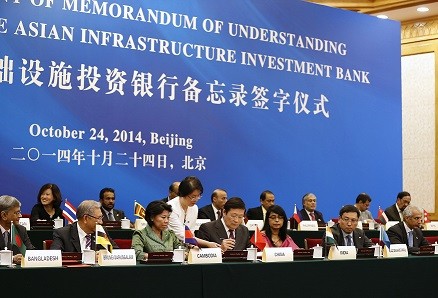The Asian Infrastructure Investment Bank (AIIB) is set to boost China's openness to the rest of the world. Ever since it was established, the China-led financial institution has gained widespread acceptance from other countries.
Luxembourg, for one, already said that it will apply to become a prospective founding member, apart from the 32 countries who also applied. More countries are expected to apply in the coming weeks.
As AIIB's main initiator, China's task ahead of her is not easy. The country is set to meet various challenges, especially on how to transform this financial institution into a world-class multinational financial mechanism.
However, the benefits that this institution would give to China are anticipated to be greater. Foremost, if AIIB is successfully established, China will inevitably become more open to the world. The institution would also boost the country's international financing capability and will lead China to be more integrated into the international arena.
Even though China's economic power as it currently stands cannot be doubted, AIIB can provide it for the first time, a leadership role in the world's financial affairs.
Among the countries that applied to be part of the institution are major European powers. Some of the countries that also applied are currently embroiled in territorial disputes with China. With AIIB, China's capacity to lead with wisdom and flexibility can be tested to the hilt.
In addition, it is expected that AIIB and World Bank, which is led by the U.S., will have an unavoidable but uneasy relationship. The relationship can be both competitive and cooperative and affect the dynamics of Beijing-Washington ties.
It remains to be seen how China would respond to these changes.



























